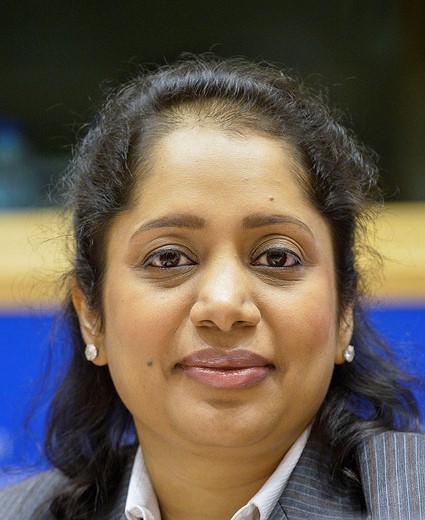GCC countries have undergone a rapid change in their socio-economic situations, food consumption patterns, and lifestyles in the past few decades. As demand for imported food and beverage increases and local production expands, more stringent food safety standards are necessary.
The UAE takes its food safety measures very seriously. Priyanka Mittal, Director, KRBL agrees, saying: “The food safety regulations in the region are quite stringent as consumer protection has become a priority in policy making. All foodstuff, domestic and imported, go through stringent inspection and have to comply with local guideline and standards before being released in the market. In fact, from a legislative perspective, the Federal Law calls for strict penalties for violations, including selling adulterated, unsafe and spoilt food.”
KRBL, India’s first integrated rice company, is a huge supplier of rice products to the GCC region. Ms. Mittal said that her company is present in the entire value chain, from seed development and multiplication, contact farming, production to marketing of basmati and non-basmati rice, quinoa, flax seeds, chia seeds and sprouted brown rice.
“Our quality principles guide us through all levels of integrated supply chain to deliver products which are safe, complaint and preferred,” she said. “Intensive checks are done at seed development to grading, aging to packaging, as well as zero waste operation.”

Priyanka Mittal, Director, KRBL
Safety measures
In July, officials at the Dubai Central Lab (DCL) said they would introduce a new device to test food samples and ensure public safety. Amin Ahmed Amin, director of DCL, said the testing device will permit authorities to check bigger capacities of fruits and vegetables. He added that the device will detect different types of chemicals in imported fruits and vegetables more accurately and quickly.
Dubai Municipality (DM) is working closely with the Ministry of Climate Change and Environment to ensure safe fruits and vegetables are imported from Kerala after the fruit and vegetables ban was recently lifted.
Iman Al Bastaki, director of food safety department at the DM said: “Countries have seen recent outbreaks, which is why the ministry prefers to test samples to ensure that vegetables and fruits are free of pesticides and chemicals. The samples we receive are generally fit for consumption, but once a problem is detected in a sample, it is disposed.”
In the holy month of Ramadan this year, the food safety department of Dubai Municipality (DM) had further enhanced its food control measures to ensure safety. Sultan Al Tahir, head of food inspection section at the food safety department had said that this was due to the increased quantities of preparations in Ramadan and the aim was the ensure consumers’ health and safety. Specialised inspections in food warehouses were done, especially of Ramadan food and consumer complexes in addition to an inspection campaign in traditional kitchens, and that the municipality would ensure the safety of ready-to-eat foods and also follow up bakeries, confectioneries and factories of dairy products.
Ms Mittal added that some of the most prevalent foodborne diseases in this region are mainly due to Salmonella species, E. coli, Campylobacter species and Listeria. These bacteria were responsible for most food and water related illnesses. “Moreover, food-producing animals such as chicken and ground beef are the major reservoirs for many foodborne pathogens and have the highest risk of foodborne bugs such as E.coli and salmonella etc. To help reduce such illnesses, several organisations in the region have developed programs and projects to monitor food safety while verifying the conformity of food products to standard specifications which are related to food safety or food quality.”
Consumer education
“Globally, consumers these days have become increasingly aware of food safety. Not only are they careful of what they eat but also ensure to read through the details on the pack, check the manufacturing and expiry dates, ingredients, etc. Gone are the days when people picked up anything new that had attractive packaging. Ensuring food safety is becoming increasingly important in the context of changing food habits, popularisation of mass catering establishments and globalisation of food supply. Therefore, as food supply becomes globalised, the need to strengthen the food safety system becomes essential.” She concluded.
References
Dubai tightens food control measures. https://www.khaleejtimes.com/ramadan-2018/ramadan-news/dubai-tightens-food-control-measures
Food safety. http://www.fao.org/docrep/008/a0104e/a0104e08.htm
Food safety issues in Saudi Arabia. https://www.researchgate.net/publication/282176271_Food_Safety_Issues_in_Saudi_Arabia
New testing device to ensure food safety in Dubai. https://www.zawya.com/mena/en/story/New_testing_device_to_ensure_food_safety_in_Dubai-SNG_120712911/?utm_campaign=magnet&utm_source=article_page&utm_medium=related_articles
Nike Air Max














